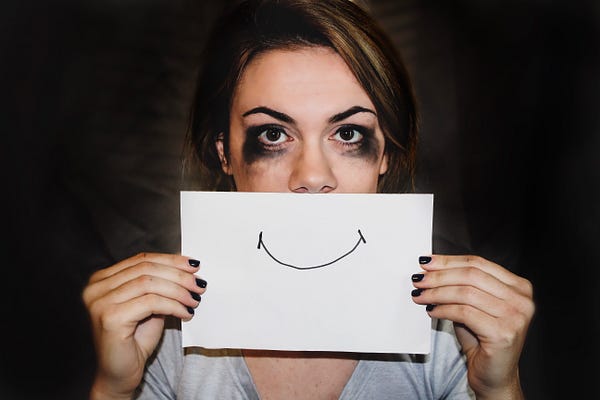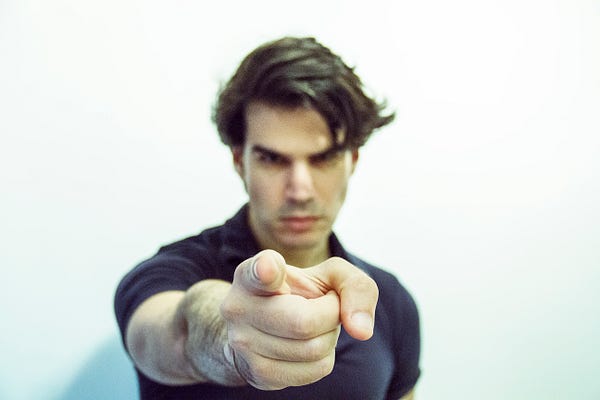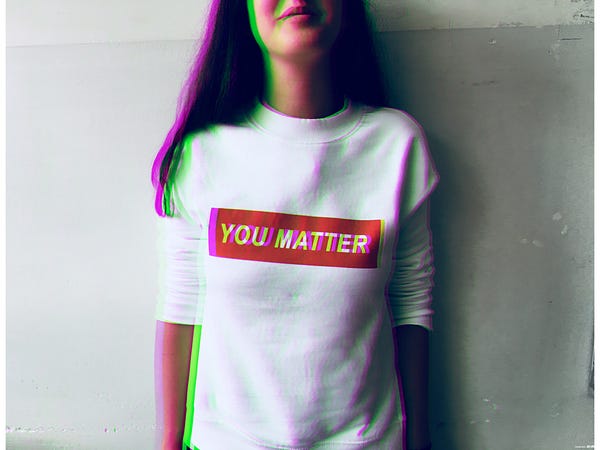I first came across the term “microaggression” two years ago in the midst of discussions around Diversity and Inclusion at App Academy, the tech bootcamp where I work. As someone in the historically dominant straight-white-cis-male category, this was a new concept for me, but after seeing a few examples, I started to get the idea.
A Crucial Concept
For readers who are new to this concept like I was, here’s a helpful intro, and you can find lots of good examples here and here. In short, a microaggression is a small interaction that reveals someone’s bias against a marginalized group to someone in that group. It’s normally not a clear and direct statement of racism or bigotry, but a subtle message in the subtext, kind of like a backhanded compliment. The subtext is normally something like “You don’t belong” or “You don’t matter”.
The most classic example of this would be to ask, “Where are you from?” of someone with non-European features. This sends a subtle message of “You’re different,” “You’re not from around here” and ultimately “You don’t belong.” This is especially hurtful if the person has lived here for a long time as it makes them feel like a stranger in their own home. Other examples might include clutching your purse close when a black man approaches or saying pretty much anything starting with “You people all…”

I, like anyone else, get a subtly demeaning message like this from time to time, but it’s rare enough that I can easily just shrug it off and go about my day unperturbed. After all, it’s “micro”. It’s small. It’s nothing… well, almost nothing. But of course when you combine enough almost nothings, they eventually add up to something (calculus anyone?). And that’s where we run into problems. For me, it’s like being bitten by one or two mosquitos now and then, but for many marginalized people, it’s like they’re getting swarmed. The difference in quantity means a totally different quality of experience.
As someone who doesn’t face these messages on a daily basis, it’s incredibly important to keep this in mind or I could find myself blaming someone who faces a soul-crushing tide of exclusion for being whinny (“What, you’re all bent out of shape over a couple mosquito bites? Come on, suck it up! [eyeroll]”). As someone who values empathy and bridging divides between people, I would consider that a personal failure. I don’t want to add to the swarm either, so I also do my best to avoid saying or doing things that might be received as a microaggression.
Unfortunately, that’s no easy task. Like any human, I have a lot of ingrained assumptions about people and the world that are beneath my awareness, and while I can study up on microaggressions, that doesn’t immediately make those biases go away. It is, in fact, by microaggressing that I will most likely figure out how to avoid microaggressing. We learn by making mistakes. If I attempt to reach out and befriend someone who is different than me, I’m going to make mistakes, and those mistakes will cause pain, both for me and my new friend. But with enough goodwill, trust and honesty, we can work through it and be stronger and closer as a result.
And this is where my problem with the word “microaggression” comes in. “Micro-aggression.” Aggression isn’t an innocent mistake, it’s intentional violence. How am I supposed to build trust and share honestly with someone I’m constantly committing small acts of intentional violence against? Only with great difficulty, if at all. So my attempts to make friendships with marginalized people are hampered, spiking the balm that could begin to heal some of our cultural wounds.
What’s in a Name?
Let me break this down. Using the word “aggression” is problematic for two reasons:
“Aggression” shifts the direction of blame. This is useful if the acts are intentional, like gender- or race-related bullying, and it’s very freeing to be able to say “this isn’t my fault”, especially for someone who’s internalized the inferiority that has been communicated to them in all these small ways. But most microaggressions aren’t intentional, and replacing “it’s my fault” with “it’s their fault” doesn’t get us any closer to a reconciled society. It only perpetuates the divisions that generate microaggressions and bigotry in the first place.
“Aggression” shifts the direction of shame. No longer are the marginalized groups shamed, but the ones who do the marginalizing, whether through overt racism or by small acts of microaggression. I feel this frequently. Fortunately, I have friends who are patient with me, but the overall culture of shame around microaggressions still makes me feel like I’m walking on eggshells, particularly in the presence of people I don’t know well.
Double Standards
The other problem I have with the word is that it’s one-sided. It only applies to marginalized people. I am conflicted about this. On the one hand, some of us do have a more privileged experience of American life, but does that truth only apply to certain groups? By some definitions I, a straight white man, cannot be the victim of a microaggression. Believing this could cause us to enact a whole host of double-standards against white folk, even as we seek to end double-standards against non-white folk. This would give ample ammunition to people who cry reverse discrimination.
Dismissing what someone says or feels on account of their perceived privilege sends just as strong a message of “You don’t belong” and “You don’t matter” as a microaggression directed at a member of a marginalized group. Consider how demeaning it would feel for someone who grew up in poverty and spent most of their life on the lowest rungs of the social ladder to be told to “check their privilege” just because they’re a white man. This is exactly the kind of demeaning generalization that the word “microaggression” was created to describe.
It’s true that this may be just a mosquito bite for them, that they can brush it off, but for someone who is trying to be an ally, who is intentionally placing themself in situations where they are no longer the majority, this can become a frequent occurrence, and one that is just as alienating. Hopefully they will see this as an opportunity to discover what it feels like and empathize, but that alienation still creates a rift between the movement and its allies. And this problem isn’t limited to those in the majority. One of the struggles for people with intersectional identities is that they receive microaggressions from the very marginalized groups they belong to, each subtly dismissing the struggles and experiences of the others.
For these reasons, I often find myself holding back from allyship out of fear. If I were to put my full self with all my questions and imperfections into it, I’m afraid I would be seen as un-woke or a jerk or unaware of my privilege. As a result, I’m not open about my true thoughts and I sometimes avoid inclusive events and relationships. Others avoid them entirely. Many would-be allies walk away from progressive movements and social circles because they are “tired of apologizing for being white.” Either way, the same result is achieved: the gap of misunderstanding grows, and that is the same gap from which microaggressions and bigotry flow.
A Better Word
These days, I try to avoid the word “microaggression”. I prefer the term “micro-offense” because it more accurately describes what is going on. “Offense” does not imply intent like “aggression” does, but it still communicates that harm has been done. It’s true that many microaggressions are intentional, and I’m fine labeling them that way, but the offender’s intent is often unclear, and “micro-offense” is broad enough to encompass both meanings, unlike the term it replaces.
I need to acknowledge that I’m proposing yet another thing a marginalized person can or cannot say to or about a white man. “Microaggression” feels appropriate for the oppression that people have suffered for generations and still experience today, so why not say it?
Maybe you should; it depends on your goal. If you want to break free of these constraints and say whatever you want, then do so. But if you are like me and want to live in a more inclusive society, then I think you cannot fight fire with fire. We need to embody that inclusive society here and now using every tool at our disposal, including language.
An Even Better, More Inclusive Word
The challenges to forging and remaining in relationships that bridge divides are large already. The last thing we need is language that makes it even harder, but there is a word that can allow us to transcend even the inadequate language we have, a word that we all need to use more and to practice more: “Empathy”.
This is what I’m ultimately after: empathy on all sides. There is an inspiring example of this from the life of Elie Wiesel, a Nobel Peace Laureate and Holocaust survivor. After meeting with a group of young Germans in 1985, he remarked, “I had never before considered that it could be as painful to be the children of those who ran the camps as to be the child of those who died in them.”
We must strive for that level of empathy. Both victim and perpetrator, oppressor and marginalized, must learn to see each other as human. The path to this is difficult, painful, and uncertain. It requires patience, determination, death to false ways of being, and a cultivated awareness of both self and other. It often leads through the parched wilderness of depression as false identities are torn down and new ones constructed. But I am convinced it is the only way to wholeness, justice, shalom, and a truly inclusive society.
Apply to App Academy: http://bit.ly/AppAcademyOnline




